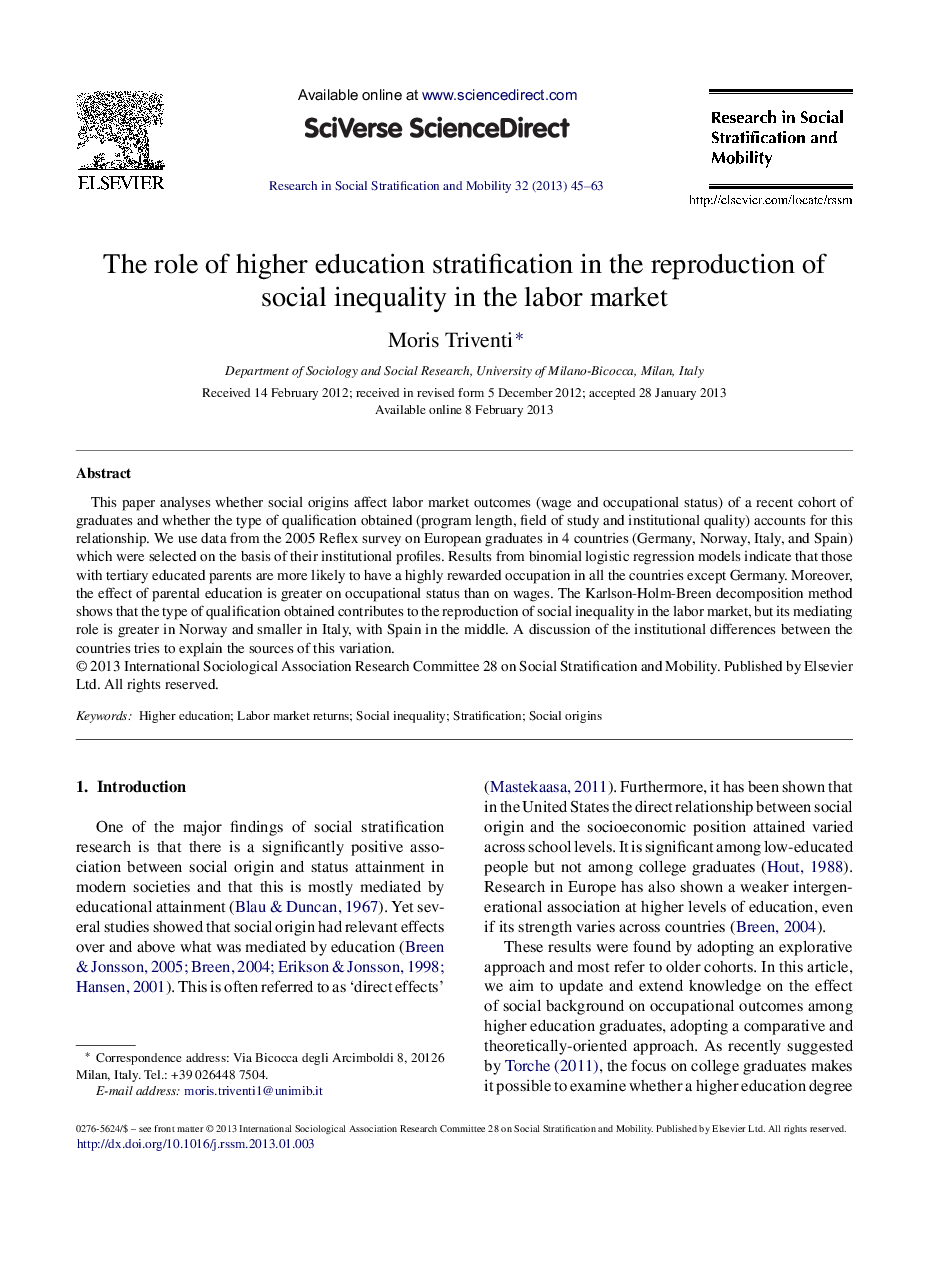| Article ID | Journal | Published Year | Pages | File Type |
|---|---|---|---|---|
| 999561 | Research in Social Stratification and Mobility | 2013 | 19 Pages |
This paper analyses whether social origins affect labor market outcomes (wage and occupational status) of a recent cohort of graduates and whether the type of qualification obtained (program length, field of study and institutional quality) accounts for this relationship. We use data from the 2005 Reflex survey on European graduates in 4 countries (Germany, Norway, Italy, and Spain) which were selected on the basis of their institutional profiles. Results from binomial logistic regression models indicate that those with tertiary educated parents are more likely to have a highly rewarded occupation in all the countries except Germany. Moreover, the effect of parental education is greater on occupational status than on wages. The Karlson-Holm-Breen decomposition method shows that the type of qualification obtained contributes to the reproduction of social inequality in the labor market, but its mediating role is greater in Norway and smaller in Italy, with Spain in the middle. A discussion of the institutional differences between the countries tries to explain the sources of this variation.
► Parental education positively affects recent graduates’ occupational returns (status and wage). ► The strength of this association varies according to higher education and labor market features. ► Type of qualification mediates the relation between parental education and occupational outcomes. ► This mediation role is stronger in Norway and lower in Italy.
